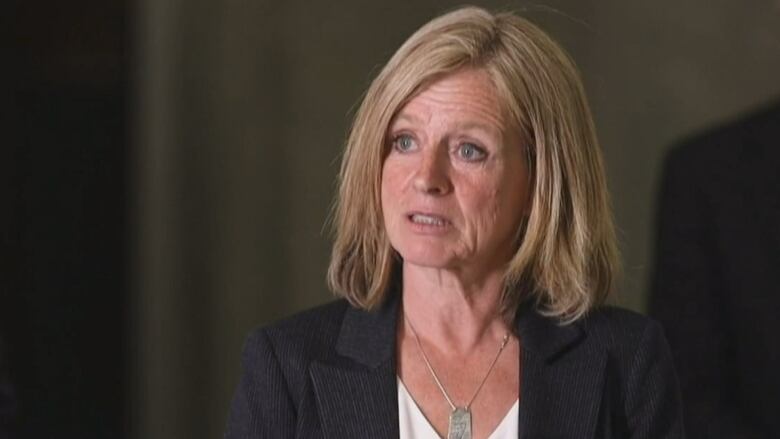Bigger investment in wage top-up could have resulted in $400M GDP increase and 2,000 jobs, NDP says
NDP analysis says $100.3M would have stimulated economy through wage increases

An economic analysis released by the Alberta NDP suggests a more substantive investment in the federal wage top-up program could have led to a GDP increase worth hundreds of millions and created nearly 2,000 jobs.
Prime Minister Justin Trudeau announced last May that the provinces had agreed to collectively pitch in $1 billion to bolster $3 billion in federal funds that would boost the pay of essential workers.
While other provinces accessed all or half of the matching federal funds by September, Alberta was the sole exception, having accessed just $47 million of its $347-million allocation.
The NDP's recent analysis used a fiscal multiplier model that indicated an investment of $100.3 million in 2020 could have generated a sustained GDP increase of $401.3 million, and job growth of 1,706, by the fourth quarter of 2021.

Leader Rachel Notley presented the findings of the analysis in Calgary on Tuesday, and questioned why the UCP had not taken full advantage of the eligible funding for Alberta.
"Essential workers have been working on the front lines of this pandemic. They risk their health every single day," Notley said.
"The federal program is put in place to ensure that essential workers are properly compensated for the risk that they take to do their job … and for some reason, [Premier] Jason Kenney has been dragging his feet."
Adrienne South, press secretary for Labour and Immigration Minister Jason Copping, said Tuesday afternoon that the UCP has supported essential workers through wage increases.
She also said that the party is working with the federal government to access the remainder of the funds.
"Since the initial announcement of the federal wage top-up program, Alberta's government has been working with Ottawa to get the dollars available to Alberta workers," South said.
"In June 2020 government introduced a wage top-up for health-care aides in contracted care homes across the province. Since that time, we have continued to negotiate with Ottawa on how to deliver the remainder of funds available to Albertans. We will have more details to share in the very near future."
'300% return on our investment'
Alberta Finance Minister Travis Toews told a legislature committee in November that the province had received the $47 million in federal funding with no strings attached.
The remaining funds would have been cost-shared at a 3:1 ratio, and could be used to pay top-up wages to health-care workers, correctional officers, first responders and other essential workers on the front lines of the COVID-19 pandemic.
"This was good for workers, and it was a good deal for the provinces — for every one dollar they spent on topping up essential worker wages, the federal government paid another three dollars," Notley said Tuesday.
"From an economic perspective, in the most simplistic of terms, this is a 300 per cent rate of return on our investment."
In its analysis, the NDP stated that it used the same methodology as Prime Minister Stephen Harper's finance ministry when creating its 2009 economic action plan.
The $100.3-million investment in the federal top-up plan, the analysis said, would have directly increased Alberta wages and been used to stimulate the economy in the short- and medium-term.
Its stimulative effects would have included an increase in spending by households, or increased savings, that encourage a higher level of sustained economic output or investment, according to the analysis.
While Calgary economist Trevor Tombe told CBC News that he does not endorse fiscal multiplier methodology — expressing concern that it can sometimes be used to arrive at whatever effect one wants — he said the NDP used the model sensibly.
"A multiplier of 1.0 is not unreasonable to use within this class of economic impact analysis. So [the NDP's] numbers are sound," Tombe said.
"I have serious critiques with the method as a whole, but the NDP in this case appears to be using the tool the way that one should."
'Political game-playing'
The province's seeming reluctance to invest robustly in the program has also drawn the ire of some unions across the province.
"Alberta is an outlier, a gross outlier, in regards to doing what's necessary to make sure that these low-paid, front-line workers get the so-called hero pay that they've been promised," Alberta Federation of Labour president Gil McGowan said in November.
Notley acknowledged the UCP would be providing an update about the wage top-up soon, but still reserved strong words for the party.
"This would have been money that we saw flowing into our economy almost immediately, and there would have been job creation," Notley said.
"I struggle to comprehend what the delay is, I'm left to wonder if maybe it really was about … political game-playing."
With files from Janet French.